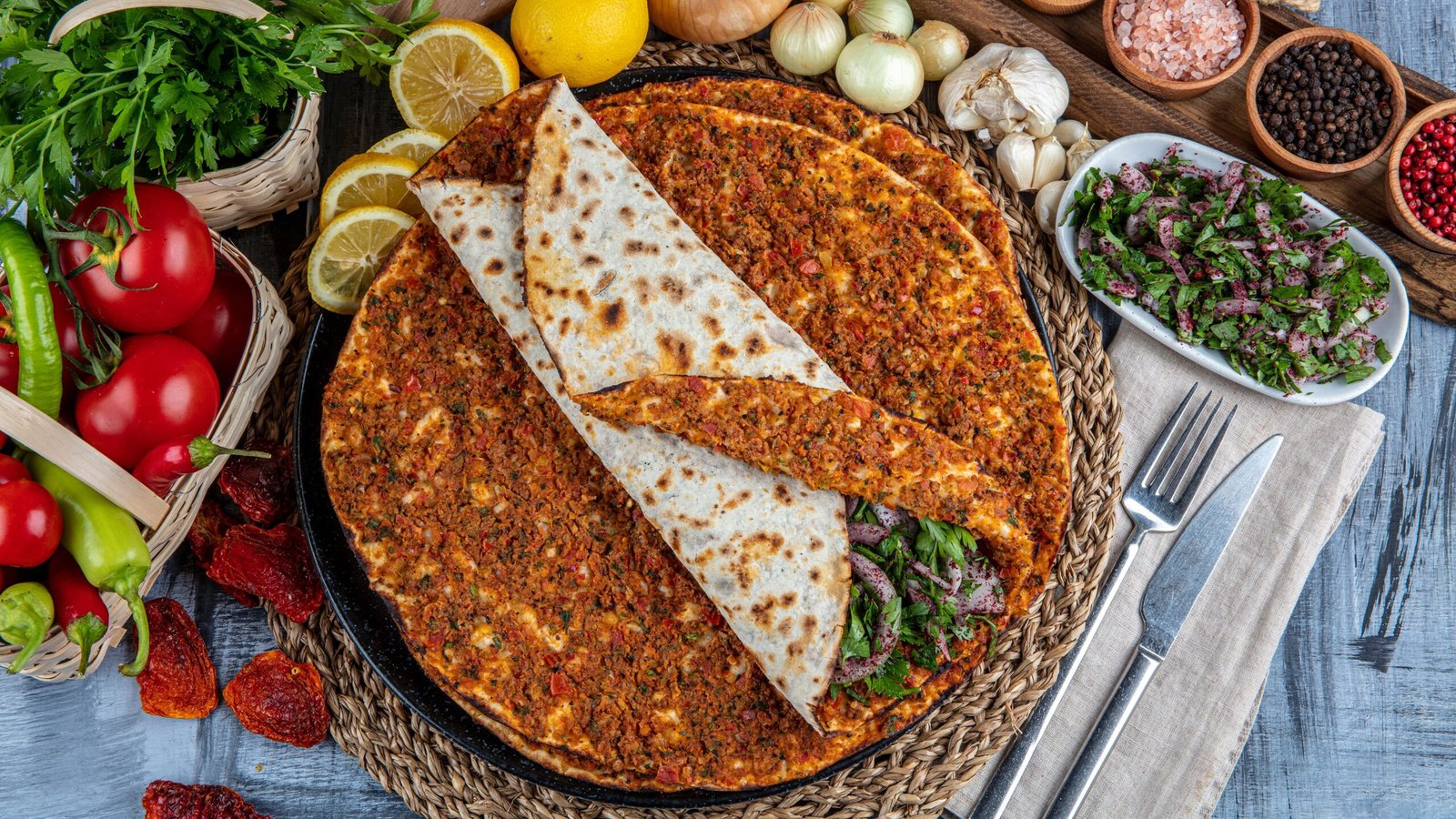Turkish cuisine offers a vibrant blend of flavors, textures, and aromas that can captivate any palate. If you’re wondering how to enjoy Turkish cuisine to the fullest, you’re in the right place. This guide will explore essential tips and dishes that will help you savor the best of Turkish food, ensuring a delightful culinary experience.
Understanding Turkish Cuisine
A Rich Culinary Tradition
Firstly, to truly appreciate Turkish cuisine, it’s helpful to understand its diverse influences. Turkish food is a delicious fusion of Middle Eastern, Mediterranean, and Central Asian flavors. This blend of influences results in a unique culinary experience characterized by rich, bold flavors and fresh ingredients.
Key Ingredients
Secondly, common ingredients in Turkish cuisine include olive oil, fresh vegetables, herbs like parsley and mint, and spices such as cumin and paprika. These ingredients form the foundation of many traditional dishes, contributing to their distinctive taste.

Top Turkish Dishes to Try
1. Meze: The Perfect Appetizer
A Taste of Everything
Meze refers to a selection of small dishes served as appetizers. It’s a great way to sample a variety of flavors and textures in one meal. Typical meze dishes include hummus, baba ghanoush, and stuffed grape leaves (dolmas). To enjoy meze, start with a few different items and pair them with some fresh pita bread or flatbread.
Popular Choices
- Hummus: A creamy blend of chickpeas, tahini, olive oil, and garlic.
- Baba Ghanoush: A smoky eggplant dip with tahini and spices.
- Dolma: Grape leaves stuffed with rice, pine nuts, and spices.
2. Kebabs: A Grilled Delight
Varieties to Savor
Kebabs are a staple in Turkish cuisine, known for their smoky, grilled flavors. They come in many forms, from shish kebabs (skewered meat) to doner kebabs (meat cooked on a vertical rotisserie). Each type of kebab offers a unique taste experience.
Must-Try Kebabs
- Adana Kebab: Spicy minced meat kebabs grilled on skewers.
- Şiş Kebab: Cubes of marinated meat, typically lamb or chicken, grilled on skewers.
- Döner Kebab: Thinly sliced meat cooked on a rotating spit, often served in pita bread or with rice.
3. Pide and Lahmacun: Turkish Flatbreads
Traditional Flavors
Pide and lahmacun are traditional Turkish flatbreads that are perfect for a casual meal. Pide, often called Turkish pizza, is a boat-shaped flatbread topped with cheese, meats, or vegetables. Lahmacun, on the other hand, is a thin, round flatbread topped with a spiced meat mixture.
Enjoying Pide and Lahmacun
- Pide: Try different toppings like minced lamb, cheese, or vegetables.
- Lahmacun: Enjoy with a squeeze of lemon and a side of fresh salad.
4. Desserts: Sweet Endings
Decadent Treats
Turkish cuisine features a variety of sweet treats that are perfect for ending a meal. From rich pastries to refreshing desserts, there’s something for everyone.
Popular Desserts
- Baklava: Layers of flaky pastry filled with nuts and sweetened with honey or syrup.
- Künefe: A sweet cheese pastry soaked in syrup and topped with pistachios.
- Rakı: Often enjoyed with desserts, this anise-flavored spirit pairs well with Turkish sweets.
5. Turkish Tea and Coffee: The Perfect Pairing
Traditional Beverages
Turkish tea and coffee are integral parts of the dining experience. More so, Tukish tea is typically served in small, tulip-shaped glasses and has a strong, aromatic flavor. Turkish coffee, on the other hand, is rich and thick, often enjoyed with a piece of Turkish delight.
Serving Suggestions
- Turkish Tea: Enjoy with a slice of cake or a small sweet treat.
- Turkish Coffee: Pair with a piece of baklava or enjoy as a standalone treat.
Tips for Enjoying Turkish Cuisine
1. Embrace the Shared Dining Experience
Turkish meals are often communal, so don’t hesitate to share dishes with friends or family. This way, you can sample a wider range of dishes and experience the social aspect of dining in Turkish culture.
2. Explore Regional Specialties
Turkey is a large country with diverse regional cuisines. Each region has its own specialties, so try local dishes wherever you go. For instance, seafood is prominent in coastal areas, while Central Anatolia is known for hearty meat dishes.
3. Pair with Turkish Wines or Spirits
Enhance your meal by pairing Turkish dishes with local wines or spirits. Moreover, Turkish wines are gaining recognition for their quality, and traditional spirits like rakı can complement many dishes.
Conclusion
In conclusion, exploring Turkish cuisine is like embarking on a flavorful journey through a rich cultural heritage. Additionally, by sampling meze, savoring kebabs, enjoying pide and lahmacun, indulging in desserts, and embracing traditional beverages, you’ll gain a deeper appreciation for how to enjoy Turkish cuisine. Whether you’re dining out or preparing dishes at home, these tips will help you make the most of every culinary experience.

